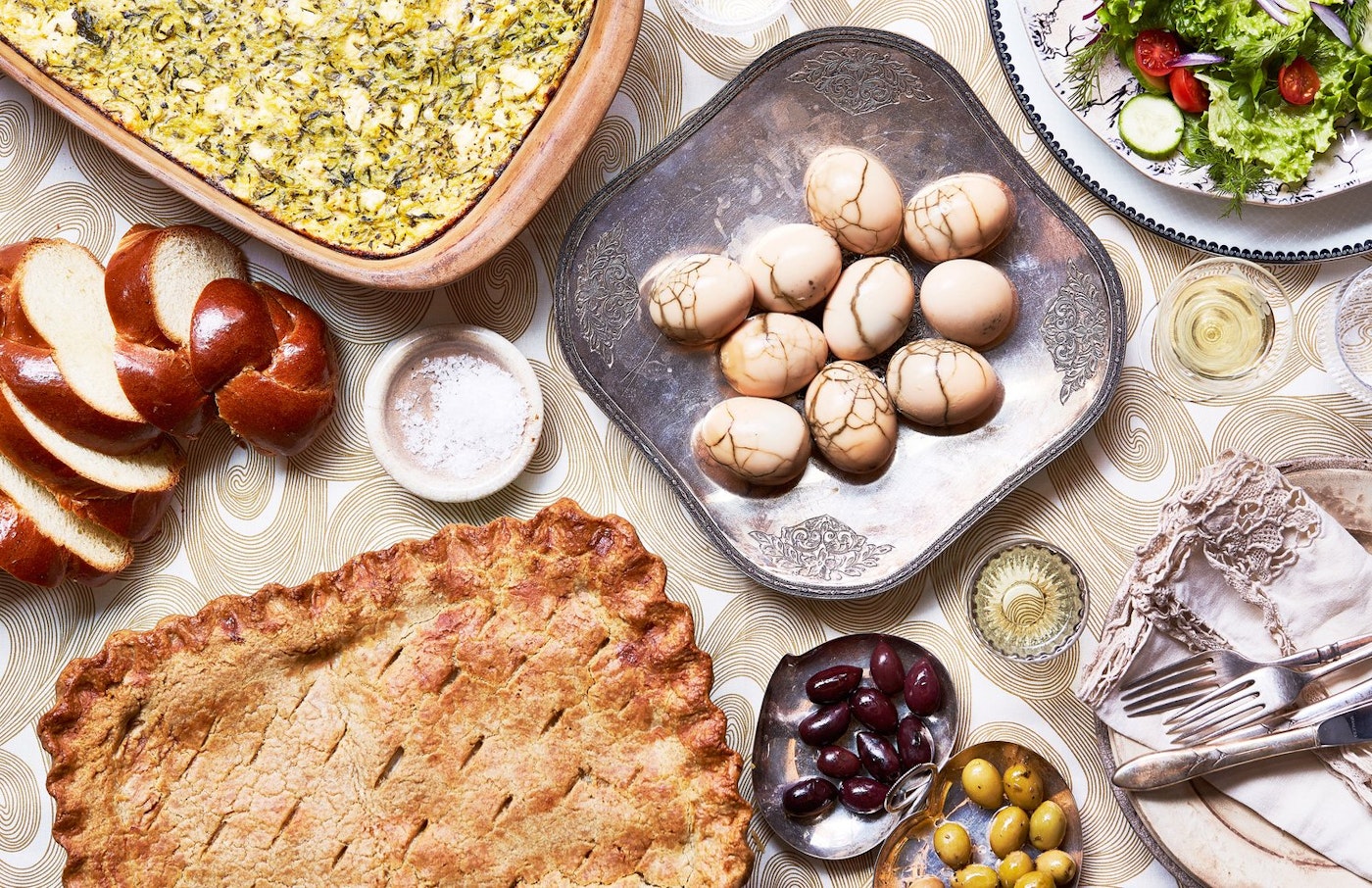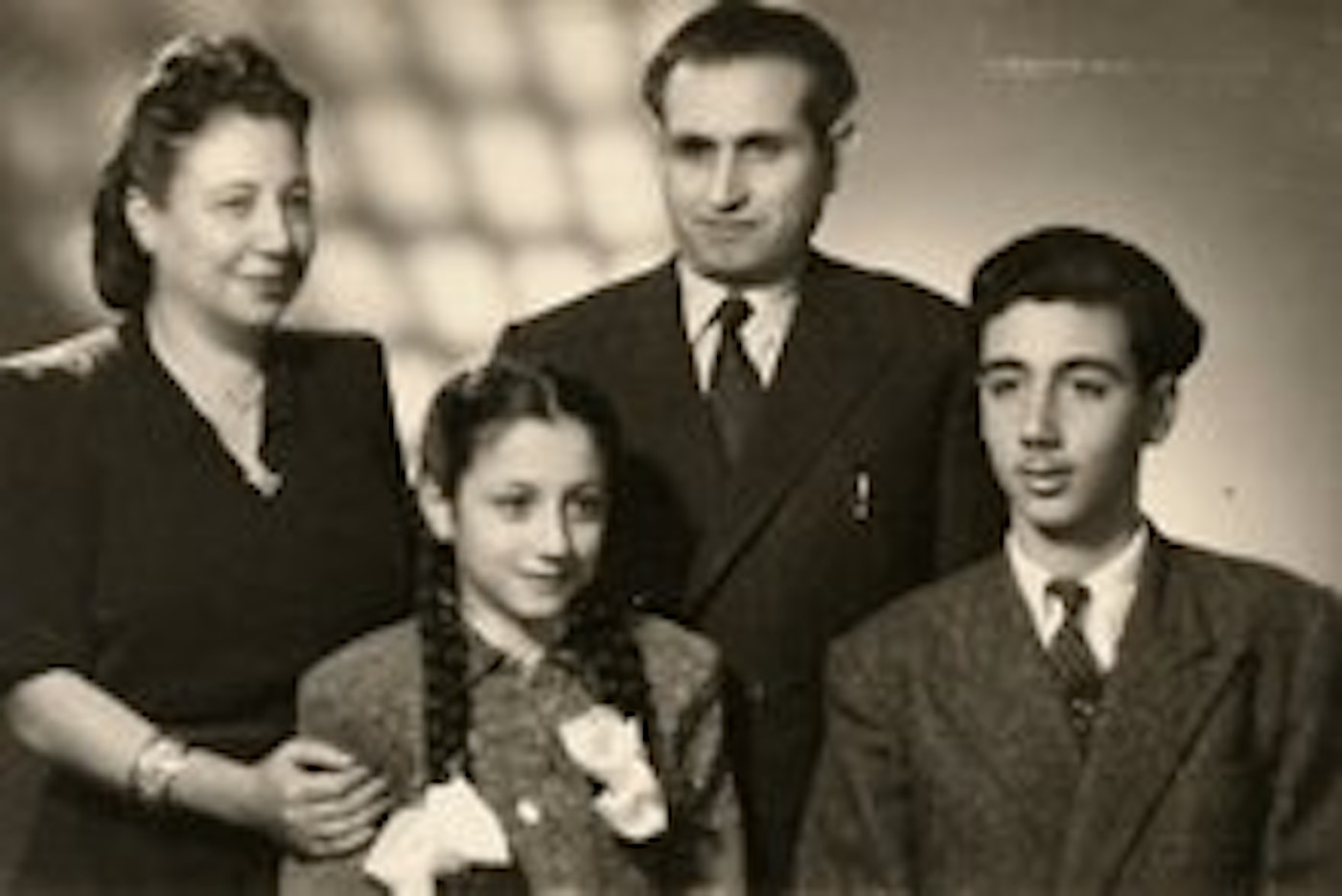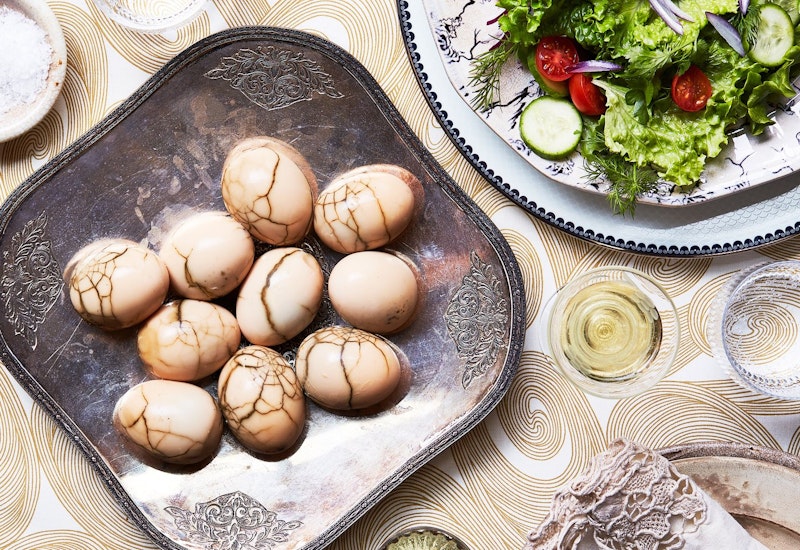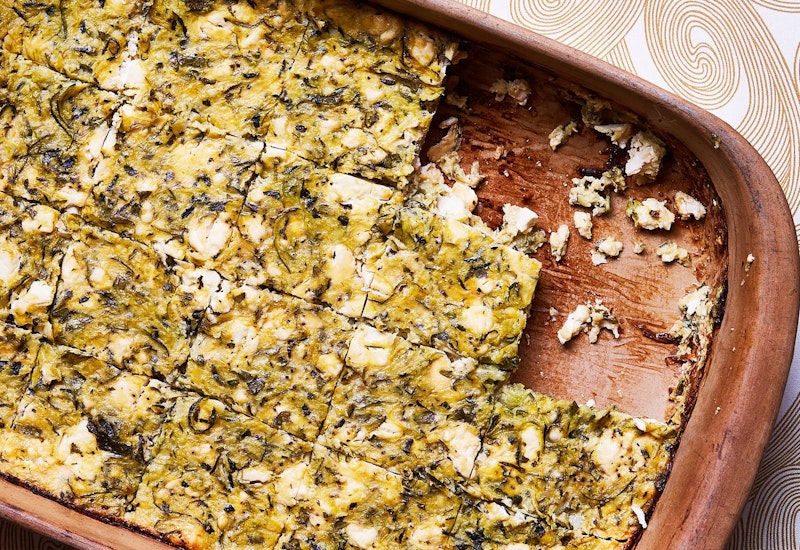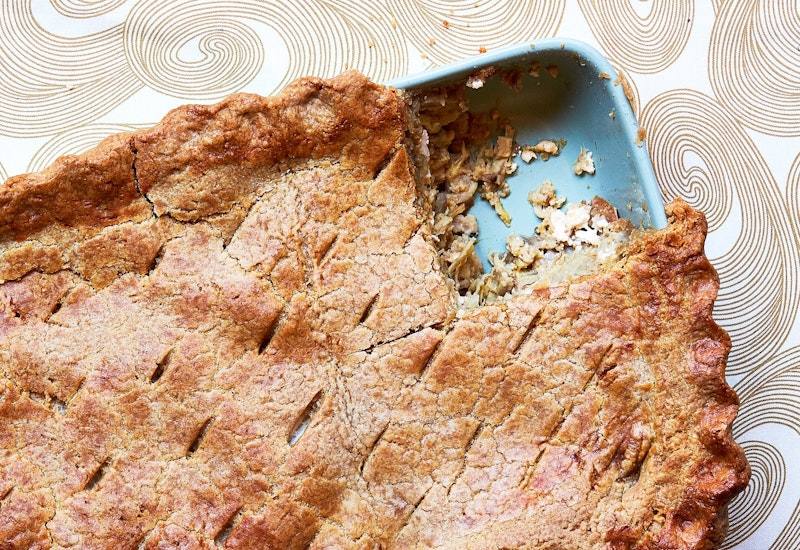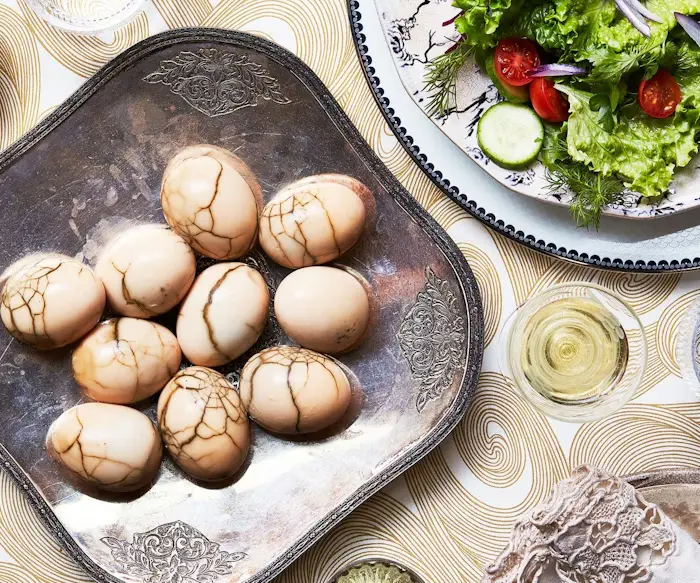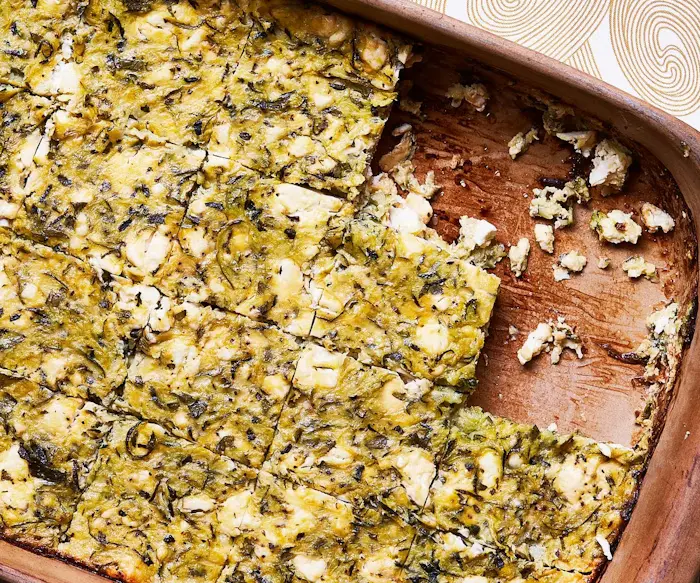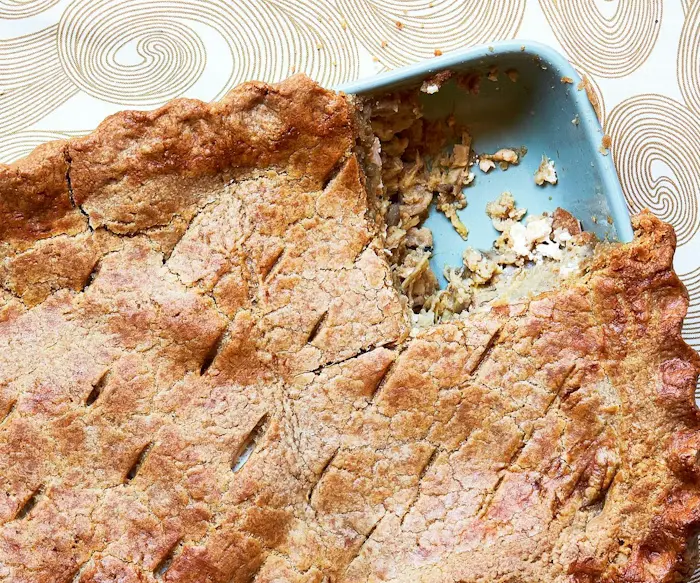The hallmark of weekend lunches in Yvet Leon’s house in Athens are huevos haminados, eggs cooked overnight in onion skins and coffee grounds until they are brown and tender. The family isn’t religious, says her granddaughter Etty, but they gather every Saturday for a spread of dishes that have been part of their Sephardic community’s tradition since before the Inquisition. Along with the eggs, there’s smoky eggplant and feta pie that the family calls pastel de merengena, a souffle of zucchini and feta or sfogato de calavasicas, all dishes that Yvet is determined to pass down.
*
Before World War II, Thessaloniki, also known as Salonica, had the largest Jewish population in Greece, numbering close to 55,000. Most of the community were Sephardic Jews, descendants of those who came following the Inquisition. Among them were Etty’s grandparents: Yvet Beza, who was born in 1935 and Maurice Leon, who was born in 1918.
Starting in 1941 with bombings and the occupation of the city, Yvet’s family moved back and forth between Thessaloniki and other places for safety, first to the village of Vyzitsa and then to the city of Lamia. Later, they left for two years to Kozani, Larissa, Athens, Ioannina, Dorres in Albania, and then, by ship, to Italy, according to records from the Jewish Museum of Greece. Finally, a steamer took them across the Mediterranean to Alexandria in Egypt where they lived for eight months until Greece was liberated in October 1944.
During the war, Maurice also left Thessaloniki. In 1939, he joined the Greek army and was stationed in Albania for six months before Greece was defeated. He made his way back to Thessaloniki, where things were calm for a time. But, on July 11, 1942, Jewish men in the city were ordered to the Platia Eleftherias, a central square. The men were put through grueling exercises in hot summer temperatures as a spectacle for the Germans occupiers. Maurice, who was among the men in the square, managed to escape down a side street.
His family decided to flee Thessaloniki, leaving individually or in small groups, so as to not draw attention. It took Maurice three attempts, ultimately making his way through Athens to the island of Skopelos where his family hid with the help of their family friend Yiorgos Mitzeliotis and his family. “…The entire village knew that these people were Jews, but nobody betrayed them,” Yvet shared in a testimony with Yad Vashem. The family remained in hiding on the island until liberation.
Of the Jews who were not able to escape Thessaloniki, more than 45,000 were deported to Auschwitz. After the war, fewer than 2,000 returned, including Yvet and Maurice, who would later marry and move to Athens for business in the early 1960s.
Growing up in the capital, Etty and her cousins would stay at her grandmother’s home every Friday night. Together, they would cook the family recipes, which come both from Yvet’s mother and from Maurice’s. In the kitchen, Yvet would give the children tricks to know when a recipe was ready or looked right, which Etty still remembers.
Today at nearly 90-years-old Yvet is still the one in charge of making them for the entire family in Athens. Even during COVID lockdowns, they would gather when they could for Saturday lunches outside, keeping the tradition strong.
